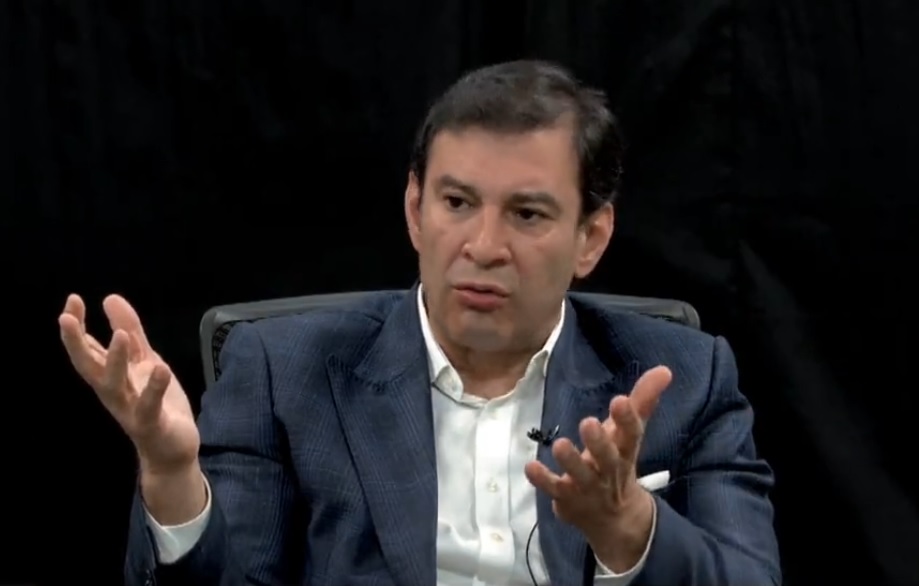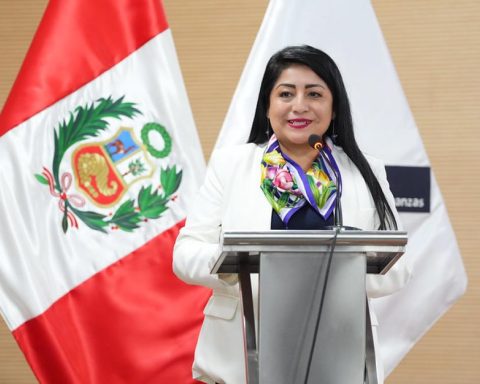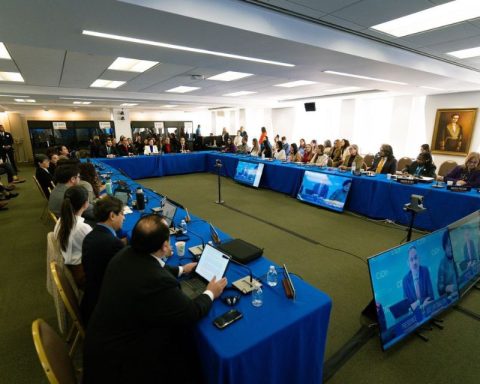Jose Maria, a recently graduated doctor in Nicaragua, has made a series of decisions in his domestic economy to survive, as the cost of living increases. For this reason, he is one of those upset with the 5% salary adjustment announced for public employees by the Daniel Ortega regime, which he considers “a mockery.”
His monthly income is 15,000 córdobas, about 413 dollars at current exchange rates. He says that he buys less beans and cheese, leaves his car at home and takes public transportation sometimes to save money on gas. He has a logic that he practices to the letter: “one creates his economy, and determines what his priorities are.”
“I share my expenses with my roommate, who is also a doctor. The rent costs us 150 dollars. I have known people who mostly live on credit. Some of them have children and their living costs are higher, they all have to find a way to survive. Things are going very badly in the economy of Nicaraguan homes ”, she assesses.
His vision coincides with the result of the latest survey by the Costa Rican firm CID Gallup, in which 62% of nationals consider that the country is on the right track. “wrong way”. The measurement was carried out among 1,204 people between January 3 and 16, 2023, it has 95% reliability and a margin of error of +/-2.78. Ortega’s image has an unfavorable balance.
On Friday, January 20, Vice President Rosario Murillo announced as “good news” the salary adjustment for state workers, which will be applied as of February, according to the Minister of Finance and Public Credit, Iván Acosta.
“A 5% salary adjustment will be incorporated, as has been established, for all public servants, all servants of the people in the State, and this, both in the Ministries and in other State powers,” Murillo said.
However, for Jose Maria, that 5% means 750 córdobas, a little more than 20 dollars. What can you buy? Which of your burdens can you ease? The answer is “none”.
In a report, published in CONFIDENCIAL in March 2022State workers complained that Daniel Ortega earns in a month what they earn in a year. The salary of the Sandinista president, for that date, was 136,847 córdobas.
“I assure you that I do much more for the country than he does, but one has to swallow fat and put up with it because if we don’t work we can’t eat,” said one of the public employees.
Ortega and his immediate family —his wife and Vice President Rosario Murillo, several of his children, daughters-in-law, former daughters-in-law, and other relatives— receive more than two million córdobas a month, equivalent to $67,500 in wages and salaries, according to a CONFIDENTIAL investigationbased on the official records of the Nicaraguan Social Security Institute (INSS) up to 2018 and the analysis of deeds from the Mercantile Registry of Managua.
The young doctor works 36 hours every four days, which often causes him to feel exhausted, and to save money he resorts to cutting back on the amounts of food in his pantry. According to him, he has very hard working nurse friends. They earn 7,000 córdobas, a little less than half of what he earns, and his reality is worse.
The measure announced by Murillo will also apply to 64,000 education workers, of whom 51,000 are teachers. The vice president assured that the measure implies the placement of 1.6 billion córdobas in the General Budget of the Republic of 2023; however, macroeconomics collides with reality on the street.
The economist and former opposition legislator Enrique Sáenz maintains that the government adjustment does not cover inflation or the adjustment of the basic food basket. He gives the example of a state worker, whose salary is 10,000 córdobas. In this case, the readjustment would be 500 córdobas. According to data from the National Institute of Information for Development (inside), the basic basket of 53 products has a cost of 18,981.55 córdobas, as of December 2022.
Economist: Salary adjustment reaches “for two pounds of cheese”
According to Sáenz, the inflation rate in 2022 was 12% and the same year the cost of the basic food basket increased by 17%. The former legislator insists that these are official figures taken from INIDE itself and not its projections, with which he demonstrates the reality that is faced in homes.
“If you compare it with the minimum income of state workers, that is, 5,900 córdobas. If you put 6,000 córdobas on it, the adjustment is 300 córdobas: then they are giving you two pounds of cheese, not enough to buy all the rice you need, the beans, the oil. It is a mockery ”, he reiterated.
Lissette, another public employee, agrees with the vision of the doctor and the economist. She says that she earns very little and that increase is minimal. She maintains that some basic products are very expensive, like the cheese that she has bought for up to 110 córdobas a pound. Unlike Jose Maria, she asks that the institution in which she works not be mentioned to avoid reprisals. Added to the economic crisis is fear.
State workers lament role of white unions
The most unfortunate thing for Lissette It is the attitude of the unions that should watch over the situation of the workers; however, they act in favor of the interests of the Executive. In this sense, they are actively working on the approval in February 2022 of the one-digit increase in the minimum wage as indicated by the regime.
The largest unions are the National Workers Front (FNT), the Federation of Health Workers (Fetsalud) and the Anden Teachers Association, all linked to the ruling party. In fact, one of its main leaders is the current president of the National Assembly, Gustavo Porras, one of the officials closest to Murillo.
“When it suits them, we are government workers and, when not, we are not,” laments the worker, referring to the internal pressures from State institutions that state employees have denounced, such as the obligation to participate in activities supporters, even on weekends when they should be off with their families.
In reports and interviews published in 2022 by CONFIDENTIAL the situation of “hostages” that public servants live in the institutions was portrayed. In addition to labor pressures, the regime has prohibited people from leaving the country and ordered the withholding of the passports of some, in a climate of state repression to prevent defections abroad and information leaks on how the political and repressive system in Nicaragua operates as a twin.
alberto He works in the area of economics and laconically indicated that this salary adjustment in his case means 530 córdobas a month, which “I see as maintaining value (of the currency). It’s really minimal.”
This state employee is another of the thousands who feel dissatisfied, but must keep quiet about the prevailing situation of oppression, which he knows well from the inside, because he has seen how political commissars exercise a control function within the institutions.
Huge inequalities in Nicaragua
The adverse economic situation of public servants, which has been deteriorated in recent years, it has run counter to the wealth accumulation of the ruling class.
Former deputy Sáenz recalled that high-ranking officials not only work for the Government, for which they receive income, but are also businessmen. A faithful portrait of the inequality of a country governed by leaders who tell the poor in their speeches that they are fighting to get them out of that situation.
An investigation carried out by a team of CONFIDENTIALpublished in February 2022, showed that the Ortega-Murillo presidential family has a network of 22 companies that is nourished by contracts with the State and Venezuelan cooperationequivalent to 5 billion dollars between 2007 and 2016.
This business scaffolding is made up of 18 executives and five lawyers who function as front men. The businesses participate in the oil, media, advertising and construction sectors. A situation very different from that of thousands of state employees such as the doctor Jose Maria, Lissette either albertowho must “stretch” their income to survive in a Nicaragua where its citizens feel overwhelmed by the high costs of living.
*All the names of public workers were changed to protect them against possible reprisals from Ortega.


















